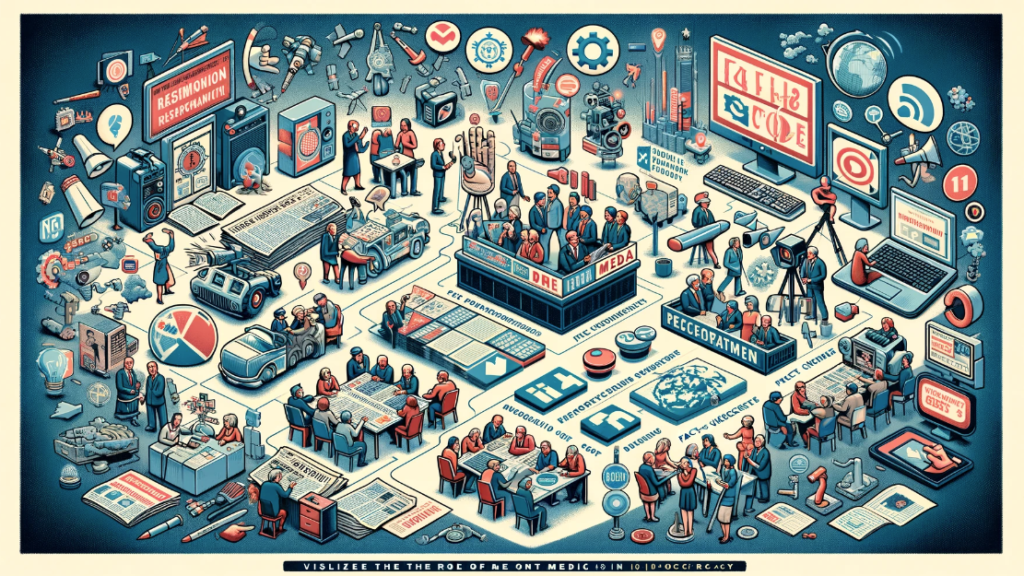Lesson 45.
The Role of Media in Democracy (民主主義におけるメディアの役割)

▮ Explanatory Text:
The media plays a pivotal role in democratic societies by ensuring the free flow of information, providing a platform for public discourse, and acting as a watchdog on government and corporate powers. A healthy democracy relies on an informed electorate, and the media serves to educate citizens about issues, policies, and the actions of their leaders. However, the media landscape is changing with the advent of digital platforms, leading to challenges such as misinformation, media bias, and the erosion of traditional journalism standards. This topic explores the responsibilities of the media in upholding democratic values, the impact of social media on public opinion and political participation, and the challenges facing media organizations in maintaining objectivity and credibility.
▮ Common Phrases:
1. Freedom of the press is essential for…
2. Investigative journalism uncovers…
3. Media bias can influence public perception by…
4. Social media has transformed political engagement by…
5. The fight against misinformation requires…
▮ Example Sentences:
1. Freedom of the press is essential for holding governments accountable and protecting democratic freedoms.
2. Investigative journalism uncovers corruption and abuses of power, contributing to transparency and accountability.
3. Media bias can influence public perception by presenting information in a way that sways opinions toward a particular viewpoint.
4. Social media has transformed political engagement by facilitating direct communication between politicians and the public.
5. The fight against misinformation requires critical media literacy and fact-checking initiatives.
▮ Questions:
1. What are the key functions of the media in a democratic society, and why are they important?
This question encourages learners to discuss the fundamental roles of the media in supporting democracy and the importance of these roles in maintaining a healthy political environment.
2. How can media organizations balance the need for speed and accuracy in the digital age, especially with the rise of social media?
Participants explore the challenges media face in the digital era, including the pressure to publish quickly and the risks of spreading misinformation.
3. &4. What impact does media bias have on democracy, and how can consumers of news discern bias in media reporting?
This prompts a discussion on the effects of media bias on public opinion and democracy, and strategies for identifying and mitigating bias.
Discuss the role of social media in shaping political discourse and its implications for democratic participation.
Learners examine the influence of social media on politics, including its potential to enhance or hinder democratic engagement.
5. What measures can be taken to combat misinformation and ensure the integrity of news in the digital era?
This question invites learners to reflect on solutions for addressing the spread of false information and maintaining journalistic standards online.
▮ Discussion Instructions:
Choose a recent example where the media played a crucial role in a democratic process, such as an election, a public policy debate, or a social movement. Discuss the media’s impact on the event, including any challenges related to misinformation, media bias, or public engagement. Reflect on how the media’s handling of the event illustrates its broader role in supporting or undermining democratic values.







